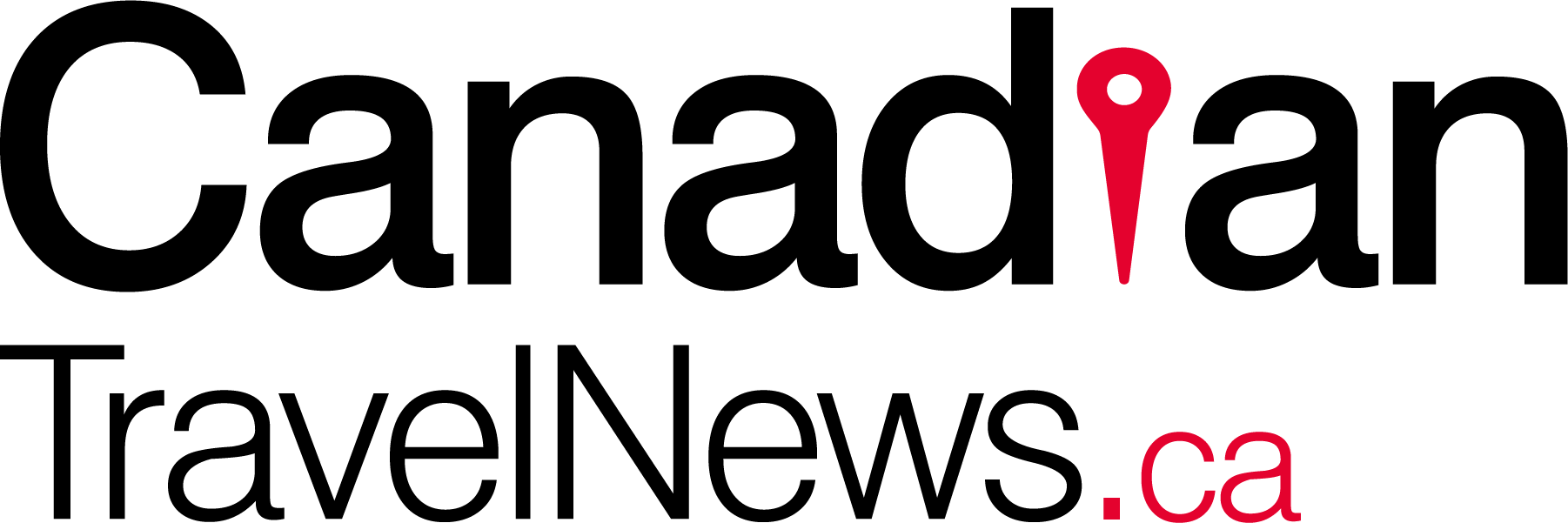
Air Canada Passenger Loads, Revenue Down Nearly 90% in Third Quarter
November 9, 2020 ctn_admin
It’s not a surprise, but it’s still a bit of a shock to see Air Canada’s terrible third quarter financial numbers for this year.
With the COVID-19 pandemic still going strong in North America and Europe, Air Canada today reported that its total revenue passenger load for the quarter was down 88% from last year. The company reported total revenues of $757 million in the third quarter of 2020, which is $4.773 billion or 86% lower than the third quarter of 2019.
The airline reported third quarter 2020 negative EBITDA(1) or (earnings before interest, taxes, depreciation and amortization), excluding special items, of $554 million compared to third quarter 2019 EBITDA of $1.472 billion. Air Canada reported an operating loss of $785 million in the third quarter of 2020 compared to operating income of $956 million in the third quarter of 2019.
Unrestricted liquidity amounted to $8.189 billion at September 30, 2020.
“Today’s results reflect COVID-19’s unprecedented impact on our industry globally and on Air Canada in what has historically been our most productive and profitable quarter,” said Calin Rovinescu, President and Chief Executive Officer of Air Canada. “From the outset, we have made the health and safety of our customers and employees our chief concern. Our airline has been a leader in introducing progressive layers of protection, such as our comprehensive suite of biosafety measures, Air Canada CleanCare+, and we continue to explore new technologies and processes to further assure travellers and regulators.
“Amongst the various science-based measures we have been advocating, testing at airports is by far the most significant, as demonstrated by the McMaster HealthLabs’ study of international travellers arriving at Toronto-Pearson. It was reported to be the largest-ever study of its kind and preliminary results clearly confirm safe alternatives exist to a mandatory 14-day quarantine, which is both stifling demand and frustrating travellers who are willing to be tested,”
“In parallel, we acted decisively to implement our COVID-19 Mitigation and Recovery Plan. Since March, we have raised almost $6 billion in additional liquidity, leveraging what was one of the industry’s strongest balance sheets as we entered the pandemic.

“We took the painful steps of eliminating 20,000 jobs, after having created 10,000 over the previous five years, and of reversing 10 years of profitable network expansion by reducing capacity by more than 80 per cent in the third quarter,” Rovinescu said.
“At the end of June, we made the difficult decision to indefinitely suspend 30 domestic routes and close eight regional stations and our Network Planning team has identified up to a further 95 domestic, U.S. transborder and international route suspensions and nine Canadian station closures required to preserve liquidity, cut costs and reduce capital expenditures as we prepare for a smaller footprint expected to last several years.
“Given the public statements made by the Honourable Marc Garneau, Canada’s Minister of Transport, on November 8, 2020 regarding commencing immediate discussions with major airlines on aviation industry sector-specific support, we are deferring the additional route suspensions and station closures pending the progress of those discussions.“
“According to IATA’s Chief Economist, governments have already provided more than US$160 billion of aid to airlines globally, recognizing the critical role they play in a country’s economy. Beyond sustaining tens of thousands of direct and indirect jobs, a healthy Canadian airline industry is essential for Canada’s infrastructure on which its economic recovery from COVID-19 depends and vital to securing the country’s place in a reordered, post-pandemic world. The impact on the industry and on the economy of how we as a country handle this crisis in air transportation will be felt for years to come.
“We have also continued our discussions with the Government of Canada on a more measured, science-based approach to travel restrictions and quarantines, which remain amongst the most onerous in the world. Preliminary results from several international studies and our McMaster HealthLabs study indicate testing can provide an effective responsible alternative to facilitate the safe relaxation of quarantines.
“We have taken several measures to carefully rationalize our existing fleet: We are accelerating the retirement of 79 mainline and Rouge aircraft. We are deferring delivery of new Boeing 737-8 and Airbus A220 aircraft scheduled for delivery in 2021 and 2022 and cancelling 10 Boeing 737-8s and 12 Airbus A220s, representing about 40 per cent of the remaining scheduled deliveries,” Rovinescu said.
“Despite modifications made to our orders, these two aircraft remain the core of our narrowbody fleet and enable us to efficiently serve transcontinental domestic and transborder routes through improved economics and range, while providing an excellent customer experience. Through this fleet restructuring and other capital reduction initiatives, we have successfully lowered total projected capital expenditures by about $3.0 billion over the 2020 to 2023 period compared to our total projected capital expenditures at the end of 2019.
“In addition to the mitigation steps we have taken, Air Canada is also preparing for the post-COVID recovery. Along with other ongoing initiatives, this month we launched the new Aeroplan, expected to be one of the best travel loyalty programs available. Our simplified and restructured aircraft fleet will be highly fuel efficient and well-configured for our key routes. Our proposed acquisition of Transat A.T. Inc. will enable us to better compete with global competitors in a drastically altered global airline market. Our nimble Cargo team has pivoted to dedicated all-cargo flights during the pandemic and Cargo will become an increasingly important segment of our business going forward.
“Most importantly, our culture remains strong – we have employees who remain highly motivated and intensely focused on safely transporting our customers and I thank them for their commitment and hard work,” Rovinescu concluded.
Air Canada has taken or will be taking the following measures as part of its COVID-19 Mitigation and Recovery Plan:
Customer Service and Safety
- Air Canada makes safety its first consideration in all that it does and has been continually updating its health and safety policies and procedures for travellers and employees in all workplaces, airports, and onboard aircraft to account for new information about COVID-19 as it becomes available. This includes a requirement for customers to wear a protective face covering, as well as enhanced protective personal equipment for airport agents and crews, the reinforcement of safe practices such as frequent hand-washing and collaborating with the Canadian federal government to screen passengers to help determine fitness for flying.
- To underscore its commitment to customer and employee safety, Air Canada introduced Air Canada CleanCare+. This program is designed to reduce the risk of exposure to COVID-19 through such measures as enhanced aircraft grooming, mandatory preflight customer temperature checks in addition to required health questionnaires and providing all customers with care kits for hand cleaning and hygiene.
- Air Canada has undertaken several medical collaborations to continue advancing biosafety across its business, including with Cleveland Clinic Canada in Toronto, a renowned global healthcare leader, to provide additional science-based evidence in our ongoing COVID-19 response; with Ottawa-based Spartan Bioscience to explore rapid COVID-19 testing in an aviation environment; and since last year with Toronto-based BlueDot, a company that monitors infectious diseases globally in real time to give us accurate, relevant information to make business and safety decisions quickly.
- Air Canada has been partnering with McMaster HealthLabs and the Greater Toronto Airports Authority in a study of international travellers arriving at Toronto Pearson International Airport. Preliminary results indicate that testing can provide an effective, responsible alternative to facilitate the safe relaxation of quarantines.
- Air Canada recently announced that it was finalizing an initial order of Abbott’s ID NOW COVID-19 rapid response tests as part of its ongoing evaluation of COVID-19 testing technology and protocols, one of the first private sector companies to do so.
- Air Canada also recently announced plans to explore the application of COVID-19 contact tracing technology in its workplace using the Bluetooth enabled TraceSCAN app and wearable technology developed by Canadian-based Facedrive Inc.
- To meet the demand for the global transport of goods, including personal protective equipment during the pandemic, Air Canada operated more than 3,000 all-cargo international flights since March 22, 2020, and plans to operate up to 100 all-cargo flights per week in the fourth quarter of 2020 using a combination of Boeing 787 and Boeing 777 aircraft as well as four converted Boeing 777 and three converted Airbus 330 aircraft where it has doubled available cargo space by removing seats from the passenger cabin.
- Air Canada announced special benefits and accommodations for Aeroplan and Altitude members in light of COVID-19. These include pausing mileage expiration, grandfathering mileage-earned status, waiving certain change and redeposit fees, and launching new promotions so that members can earn additional Aeroplan Miles without leaving home.



















Leave a Reply